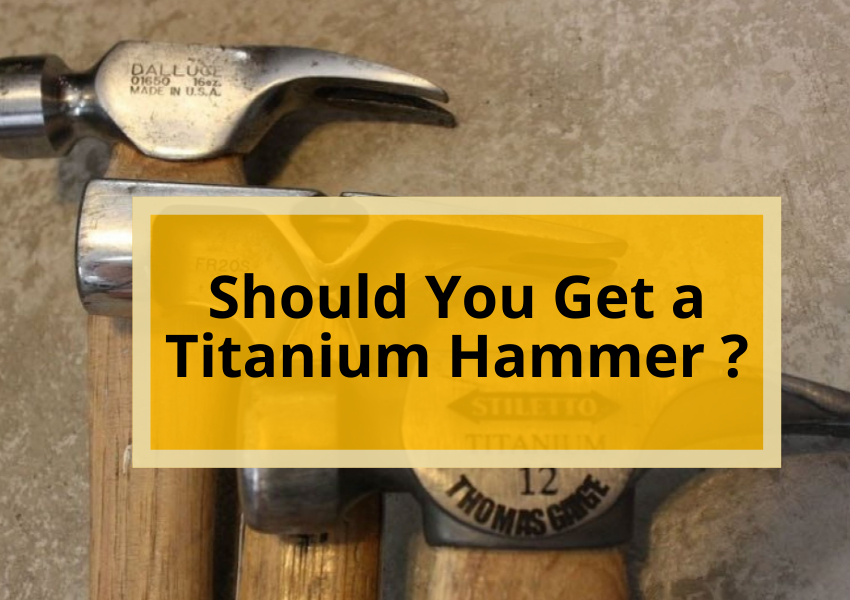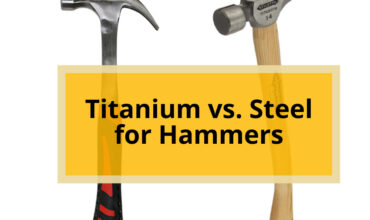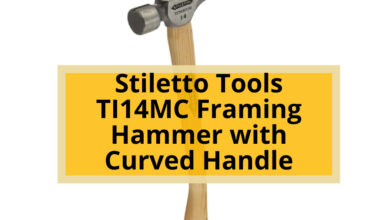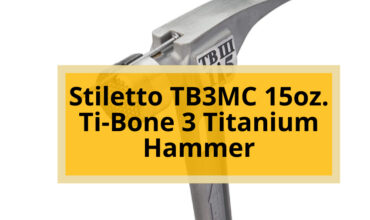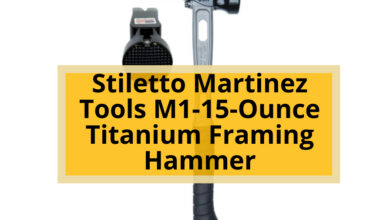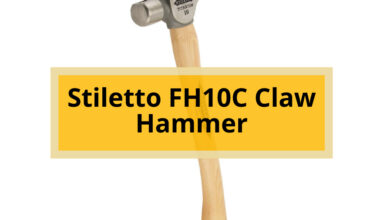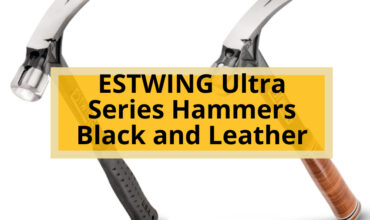Titanium hammers have become increasingly popular in recent years among both professional contractors and DIY enthusiasts. But are they really worth the higher price tag compared to steel hammers? In this article, we’ll examine the pros and cons of titanium hammers to help you decide if investing in one is right for you.
What is a Titanium Hammer?
A titanium hammer is a hammer made primarily of titanium metal. Titanium is valued for its high strength-to-weight ratio, corrosion resistance, and flexibility. It is considerably lighter than steel while still maintaining tremendous durability. Most titanium hammers have a titanium head and fiberglass handle.
The Benefits of Using a Titanium Hammer
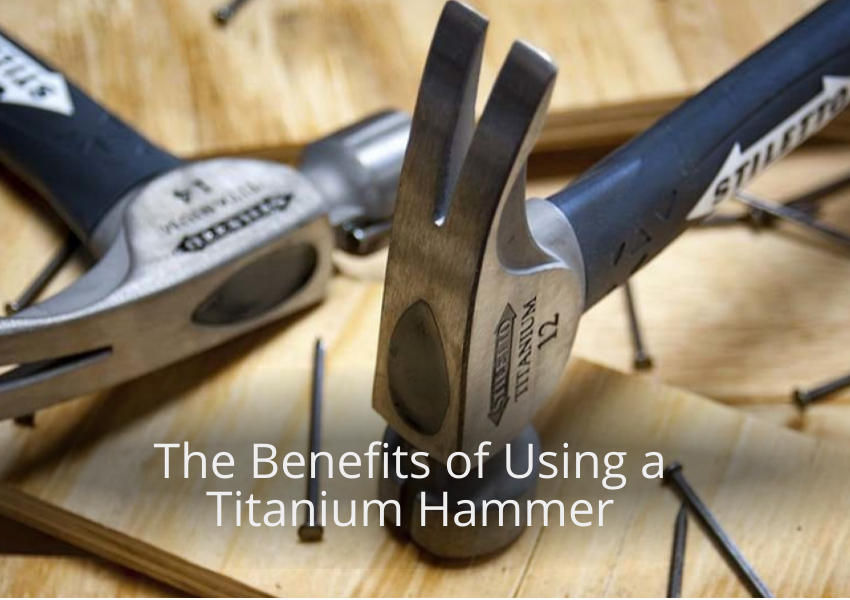
There are several key benefits that make titanium hammers appealing:
Lightweight
The most noticeable advantage of a titanium hammer is its light weight. Titanium hammers are around 40% lighter than comparable steel hammers. This makes them much easier to swing and prevents fatigue, especially during extended use. The lighter weight allows for greater swinging speed as well, leading to more powerful strikes.
Durability
Despite being lighter, titanium is an incredibly strong and durable metal. Titanium hammers maintain their integrity through years of heavy use without damage. The titanium head resists chipping, denting or cracking far better than steel. Titanium’s strength comes from its hexagonal close-packed crystalline structure. It is as sturdy as steel but without the extra weight.
Corrosion Resistance
Titanium has excellent corrosion resistance due to its protective oxide film. It withstands saltwater and harsh weather conditions without rusting or decomposing over time. This means a titanium hammer can be used outdoors in all environments without degradation. Steel hammers, on the other hand, can start to rust after being exposed to moisture.
Magnetic and Conductive Properties
Titanium is non-magnetic and non-conductive. This makes titanium hammers ideal for use around sensitive electronic equipment like aircraft or MRI machines. The non-magnetic nature also means titanium hammers won’t attract other metal objects like nails or screws.
Shock Absorption
The flexible nature of titanium provides more shock absorption than rigid steel. This decreases the amount of vibration transferred to your elbow and shoulder when striking. Reduced vibration makes titanium gentler on the joints, helping prevent long-term damage.
Versatility
Due to its strength and lightweight design, titanium hammers can be used for virtually any hammering task. They work great for general carpentry, construction, automotive work, machining, and hobby metalworking. Whether driving nails or knocking out dents, a titanium hammer gets the job done while reducing arm fatigue.
Potential Drawbacks of Titanium Hammers
Despite the many benefits, titanium hammers do come with some potential disadvantages:
Expensive Initial Cost
The biggest downside is the high price of titanium hammers compared to steel. Expect to pay between 2-4x times more. While they last longer, the upfront cost is steep. Those on a tight budget may be better served buying a steel hammer.
Not Ideal for Heavy Duty Tasks
The lightweight design that makes titanium hammers easy to swing also means they lack the brute striking force of heavier steel hammers. For heavy duty tasks like concrete forming or driving large spikes, a steel sledgehammer is a better choice.
Produces Sparks When Struck
An odd quirk of titanium is that it can produce sparks when struck against hard surfaces like rocks or metal. This is due to its hardness and low thermal conductivity. It can be a nuisance or safety concern for some environments.
No Magnetic Properties
Some users find the lack of magnetism to be a drawback, as you can’t use the hammer head to temporarily hold nails or screws in place. However, magnets can be added to overcome this.
Falls Apart Over Time
There are reports of some cheaper titanium hammers falling apart after the head loosens from the handle. Paying for quality construction prevents this, but it’s something to watch out for.
Who should get a titanium hammer?
If you are a professional carpenter or DIY enthusiast who uses a hammer on a regular basis, then a titanium hammer is a good investment. Titanium hammers are more expensive than steel hammers, but they offer a number of benefits, including lighter weight, vibration damping, durability, and efficiency.
If you are only going to use a hammer occasionally, then a steel hammer may be a better option for you. Steel hammers are less expensive and easier to find than titanium hammers.
How to choose a titanium hammer?
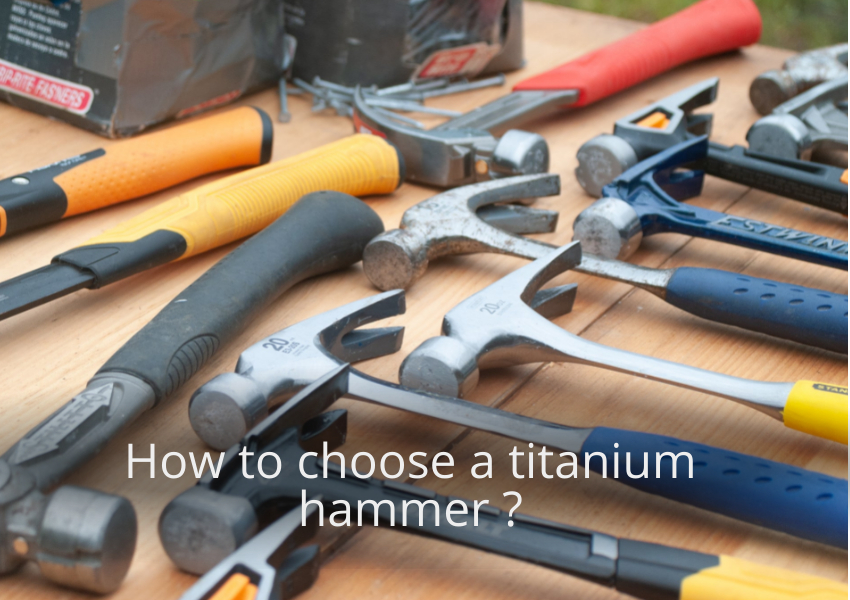
If you decide to get a titanium hammer, there are a few things you should keep in mind when choosing one:
- Hammerhead weight
Titanium hammers come in a variety of hammerhead weights. Choose a hammer with a hammerhead weight that is appropriate for the type of work you will be doing. For example, if you are framing a house, you will need a heavier hammer than if you are hanging pictures.
- Handle material
Titanium hammers come with a variety of handle materials, including wood, fiberglass, and carbon fiber. Choose a handle material that is comfortable for you to grip and swing.
- Your budget
Titanium hammers are typically more expensive than steel hammers. They can range in price from around $100 to $300.
Choose a hammer that fits your budget. If you are on a tight budget, a steel hammer may be a better option for you.
- How often you use a hammer
If you only use a hammer occasionally, then a steel hammer may be a better option for you. Titanium hammers are a good investment for professional carpenters or DIY enthusiasts who use a hammer on a regular basis.
- The type of work you do
If you are doing heavy-duty work, such as framing a house, you may want to choose a heavier hammer. If you are doing lighter work, such as hanging pictures, you may want to choose a lighter hammer.
- Your personal preferences
Ultimately, the best way to decide whether or not to get a titanium hammer is to try one out for yourself. See how it feels in your hand and how it performs for the type of work you do.
Best Uses for a Titanium Hammer
Here are the top applications where a titanium hammer excels:
- Framing, roofing, siding, trim carpentry
- Automotive bodywork and dent removal
- Home remodeling and DIY projects
- Machining, metal fabrication, jewelry making
- Assembly and disassembly of electronics or aircraft
- Geology and mining in outdoor environments
- Underwater marine construction and salvage
- Residential and commercial construction
- Any tasks where low weight and corrosion resistance matter
A titanium hammer is also a great second hammer to pair with a traditional steel hammer. Use the titanium for most tasks and the steel for maximum striking force when needed.
Recommended Titanium Hammers
Some of the best titanium hammer options include:
- Vaughan 10 oz. Titanium Hammer – The lightest 10 oz. framing hammer available. Ultra durable head resists overstrike damage.
- Estwing Ti-14 16 oz. Titanium Hammer – One-piece titanium construction eliminates loose heads. Perfect balance and swing weight.
- Ludell 12013 20 oz. Titanium Hammer – Ideal mid-weight hammer with slip-resistant grip for gloved hands.
- TEKTON 30403 Titanium Hammer Set – Get 13oz, 16oz, and 20oz titanium hammers in one money-saving set.
- Stanley FATMAX Titanium Hammer – Heavy-duty 22 oz. hammer with patented torsion control grip to reduce vibration and impact.
Other popular titanium hammer brands include:
- Stiletto
- Martinez
- DeWalt
- Milwaukee
FAQ About Titanium Hammers
Are titanium hammers good for driving large nails?
While durable, titanium is not ideal for driving very large nails or stakes. The lighter weight doesn’t generate as much striking force. For heavy duty tasks, a steel sledgehammer is a better choice.
Can you use a titanium hammer for metal chiseling or stonework?
Yes, titanium hammers work well for light chiseling and stonework applications. The titanium head won’t damage chisels or tiles. Just avoid aggressive heavy-force chiseling.
What size titanium hammer is best?
A 16 oz or 20 oz titanium claw hammer is recommended for general use. Go lighter (13-14oz) for extended overhead work, or heavier (22-28oz) if you need more striking force.
Why are titanium hammers so expensive?
Titanium is naturally more expensive than steel. Machining titanium also requires more specialized equipment. The pricing offsets the higher material and production costs.
Are titanium hammers worth the extra cost?
For professional contractors or avid DIYers, the benefits of lightweight durability usually justify the cost. More casual users may not use a titanium hammer enough to warrant the price premium.
Do titanium hammers have lifetime warranties?
Many leading titanium hammer brands like Vaughan, Estwing and Stanley include lifetime warranties against manufacturing defects or breakage. This demonstrates the long-term reliability.
Conclusion
In summary, titanium hammers offer significant advantages thanks to their outstanding strength-to-weight ratio, corrosion resistance, and flexibility. They are perfect for those who value a lightweight tool that can withstand years of daily use without breaking down. However, the cost is quite a bit higher than a steel hammer. For professionals and serious DIYers who want the best, a titanium hammer is a worth investment. More casual users on a limited budget may be better off sticking with a traditional steel hammer. Evaluate your needs and usage to decide if making the switch to titanium is justified.
